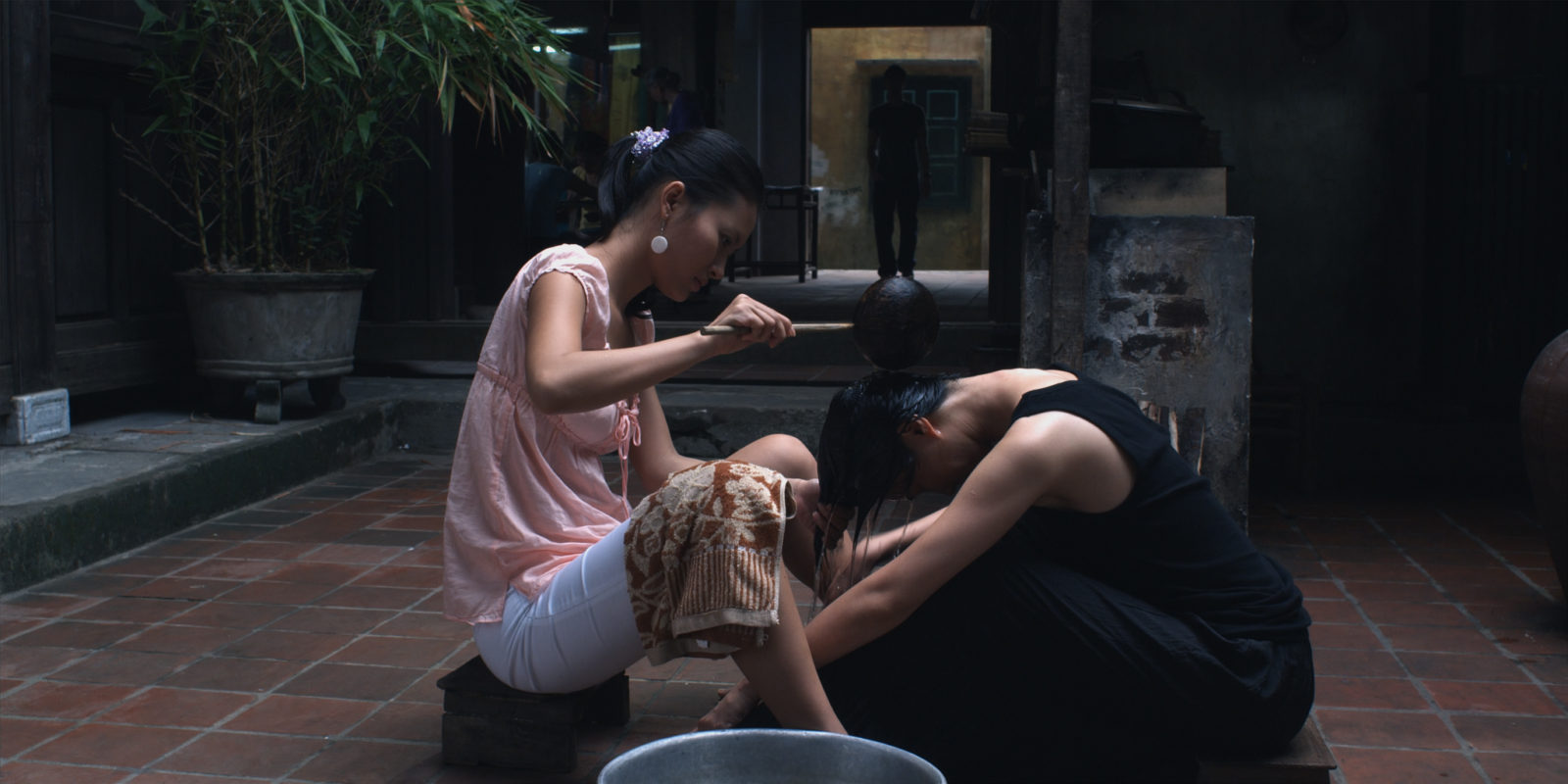Duyen’s marriage to Hai ensures that from now on he will be admitted into the male sphere, the sphere of a well-considered virility that his fellow men display as a social convention. Hai is preparing to make him into the man he needs to be, and under the complicit and vigilant gaze of the women around him, the lover must become a woman. But here marriage does not freeze the framework of a contract, it weakens the reference points of the characters in their environment. The success of Chuyen Bui Thac’s second feature film (after Vivre dans la peur, 2005) lies in its detailed description of a seemingly ordinary situation, without conceding to a convenient naturalism. The characters are no longer types onto which we would lazily plaster a few ideas in the form of a social portrait, but rather a moving, floating drawing that we endeavour to take from each of the characters. Beyond taboos, troubles and hesitations, the proof of their existence in a way.
Jérôme Baron



